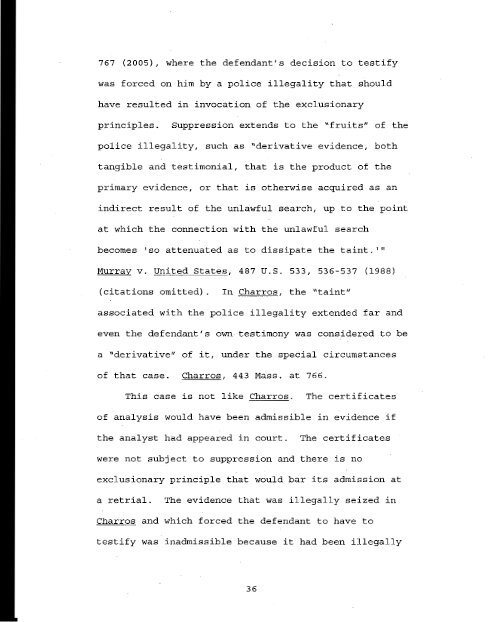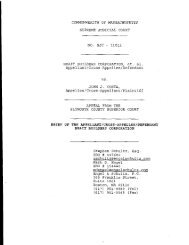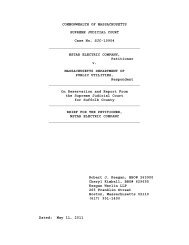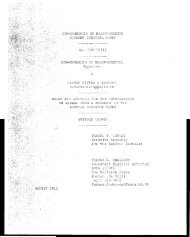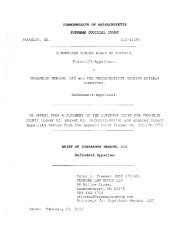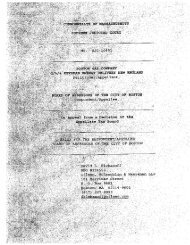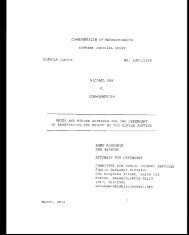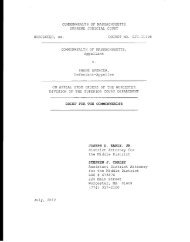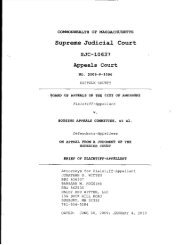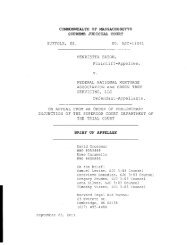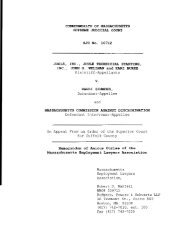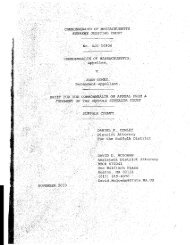463 Mass. 353 - Appellee Commonwealth Brief - Mass Cases
463 Mass. 353 - Appellee Commonwealth Brief - Mass Cases
463 Mass. 353 - Appellee Commonwealth Brief - Mass Cases
You also want an ePaper? Increase the reach of your titles
YUMPU automatically turns print PDFs into web optimized ePapers that Google loves.
767 (2005), where the defendant's decision to testify<br />
was forced on him by a police illegality that should<br />
have resulted in invocation of the exclusionary<br />
principles. Suppression extends to the "fruits" of the<br />
police illegality, such as "derivative evidence, both<br />
tangible and testimonial, that is the product of the<br />
primary evidence, or that is otherwise acquired as an<br />
indirect result of the unlawful search, up to the point<br />
at which the connection with the unlawful search<br />
becomes 'so attenuated as to dissipate the taint.'"<br />
Murray v. United States, 487 U.S. 533, 536-537 (1988)<br />
(citations omitted) . In Charras, the "taint"<br />
associated with the police illegality extended far and<br />
even the defendant's own testimony was considered to be<br />
a "derivative" of it, under the special circumstances<br />
of that case. Charras, 443 <strong>Mass</strong>. at 766.<br />
This case is not like Charras. The certificates<br />
of analysis would have been admissible in evidence if<br />
the analyst had appeared in court. The certificates<br />
were not subject to suppression and there is no<br />
exclusionary principle that would bar its admission at<br />
a retrial. The evidence that was illegally seized in<br />
Charras and which forced the defendant to have to<br />
testify was inadmissible because it had been illegally<br />
36


